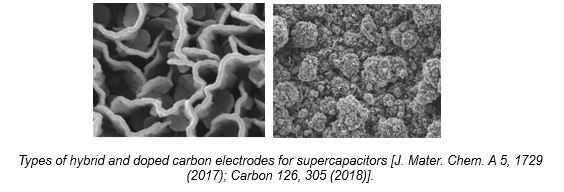Project summary
Hybrid materials play an important role in current clean energy research, as they show large surface area, excellent electrical conductivity, and ease in defect engineering and surface functionalisation. A range of energy storage devices, including supercapacitors and batteries, are increasingly employing hybrid materials for enhanced electrochemical performance.
This project will aim to develop a new series of hybrid electrode materials with controllable features, such as size, doping, porosity and functional groups, using a variety of available techniques. These materials will then be employed in supercapacitors for enhancing both energy and power densities. The project will include the following activities:
- Design and fabricate hybrid materials for supercapacitor electrodes.
- Electrochemical performance evaluation of supercapacitor using the hybrid material electrodes.
- Understand the charge storage mechanism using tools such as electrochemical quartz crystal microbalance (EQCM).
Academic Supervisor:
